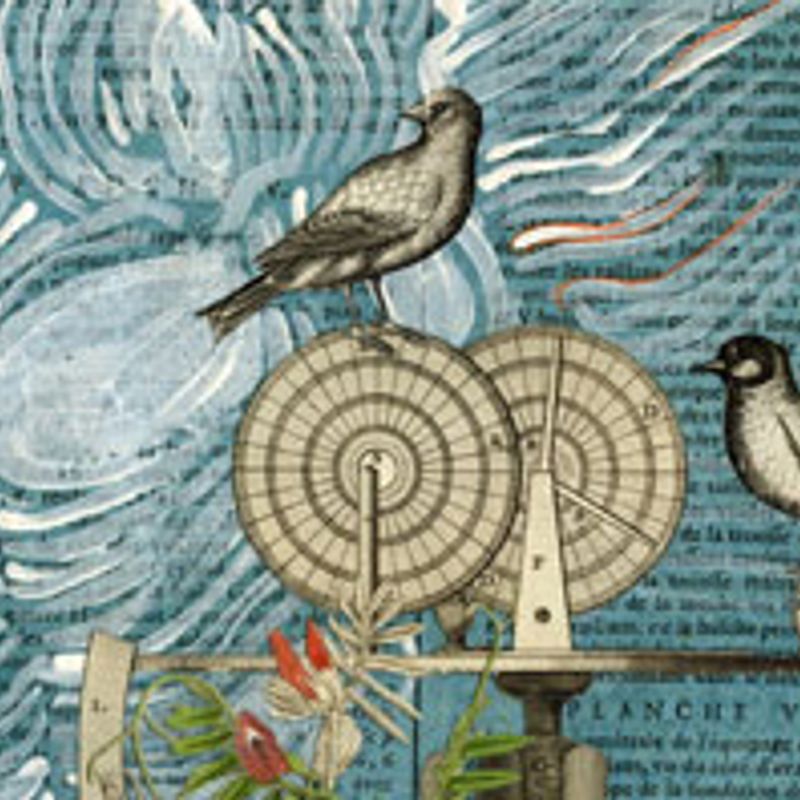First Person
by Robert WrigleyOne lies on one’s back in the woods, savoring the sun,
and for some reason one has opted
for what Fowler calls the “false first person pronoun”—one,
that is, over the other. One brushes an ant from one’s ear.
One peers up into the breeze-swayed branches
of a Ponderosa pine, one among many
one has arranged oneself under. Perhaps the wind,
which is easy and warm, dislodged the ant
one swept from one’s ear, meaning
it had fallen many times its height to land there,
in the whorl of the ear of one. In truth, one wishes
for the tongue of a sylph instead of an ant. Even two sylphs,
one thinks, though perhaps it is not sylphs one means—
they being invisible spirits of the air—
but rather the slender girls of one’s conjuring. (One conjures,
one admits.) Thinking one dead, a deer approaches.
One imagines being a deer, but then one rises
to a seated position, so that the deer will startle
and run. If only one could run as a deer does.
If one were not so weary, one would that very deer chase
a ways, beguiled by the wave of its white tail.
But no, one is molten. One seems to have no bones.
One shall not run, not now, nor even rise.
Instead one shall subside to one’s supine pose
and by the sun through the needles of the trees be dappled.
Though of course one should avoid the word dappled.
One knows this. Yet something about the sun
and the sway of the shadows makes one
larcenous as well as slothful. And as one acknowledges
one’s Hopkinsian trespass, one notes
perhaps the same sort of finch spoken of
in his poem and sees one’s borrowing as praise.
Of the finch, that is, although it dawns on one
that this particular finch is an American Goldfinch,
and one decides one’s praise is for him instead, the poet.
One feels literary and allusive then. It seems one’s time
upon one’s back in the woods is not wasted after all.
There is the squeegee-squeegee-squeegee-squeegee song
of the goldfinch. One is delighted by the nineteen ees
in the preceding line, not one of which has been written,
since one is reclined under the trees
with none of the usual writing implements. (One counts them
in one’s head and upon one’s fingers instead.) One’s 1965
Book-of-the-Month Club edition of Fowler’s Modern
English Usage delights one also, though it is a quarter-mile away
and stamped with the name and address of a dead woman
one knew once. One knew her and she died, and one is glad
to have known her, for she was droll and brilliant,
although one wishes one had known her when she was young.
Once one was young but is no longer,
though one still conjures as if one were—sylphs, women,
the too-soon dead, the chaste and priestly poets of yore.
Otherwise, one does not imagine one is certain of much.
In fact, one is almost asleep, but then a hawk alights
on the limb directly above, a rabbit in its talons.
One’s breath is held. One perceives the soul
of the rabbit does not abide. One dares not move,
even though one’s face and white T-shirt
will soon be dappled with the rabbit’s blood.
One imagines. One thinks of the one one loves
and knows that she will startle
to see one’s bloody face and shirt.
One will stand seemingly wounded and speak to her
of wind and sun, the hawk and its prey, the finch and the deer,
even Fowler (all things whose beauty is past change),
and the one one loves will not understand at first,
when one insists that one must never be
the last one
to die.



